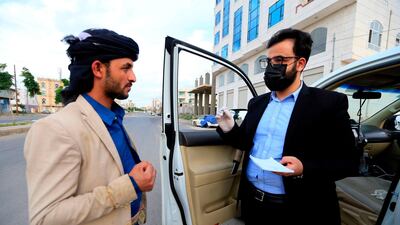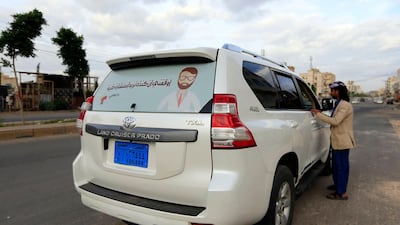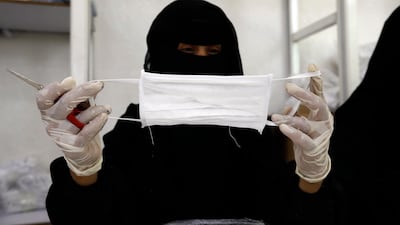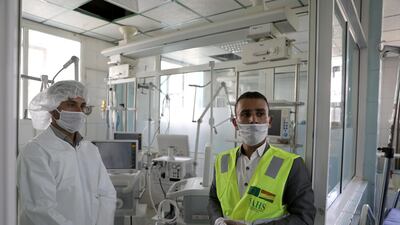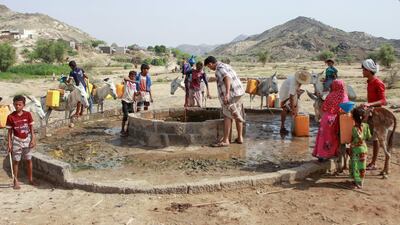The pace of news developments is overwhelming. With the latest demonstrations against police violence in the US and globally, the reopening of economies around the world, the latest utterances of the American President, and unfolding military campaigns around the region, the coronavirus pandemic can sometimes feel like a fading concern. Those of us whose families and loved ones escaped unscathed from the virus may be lulled into a false sense of security.
But we must not let our guard down at a crucial moment when the virus is experiencing an alarming resurgence, including in the Middle East, as countries reopen. Vulnerable communities are at heightened risk as cases climb again in the region.
Last week, a second wave of coronavirus infections hit Iran, which experienced a daily increase in cases unseen since March, with 3,574 new infections recorded last Thursday over a period of 24 hours alone. The rise raised concerns about the speed with which the country was reopening its economy, houses of worship and other facilities.













In Egypt, the minister of scientific research has said the real number of cases in the country had probably exceeded 100,000 – more than four times the 25,000 official cases that had been recorded as of June 1 (it has since increased to around 35,000).
Likewise in Yemen, while the numbers for the whole country are officially just under 500 cases with 112 deaths, the figures for Aden alone are believed to be in the hundreds, according to local funeral workers, grave diggers and residents. Few believe the unlikely statistics supplied by the Houthis of just four cases, which the group's health minister acknowledged to the Associated Press was a way to avoid scaring people. This in an impoverished country already wracked by war, poverty and other disease.
The United Nations has said there was a sharp increase in cases and weekly deaths as countries in the region reopened and lifted lockdowns in recent weeks. Overall, there are more than 430,000 coronavirus infections in the Middle East and North Africa, with over 11,000 deaths. In many countries with food insecurity, ongoing conflict, lack of hospitals and poor public health infrastructure, among other humanitarian crises, the pandemic is worsening many of these challenges. The spread of the virus in refugee camps, for instance, could spell disaster.










The Middle East has, up until now, thankfully been spared the worst of the pandemic, at least compared to developed countries like the US. The reasons why are a mystery, with so much still unknown about this virus and how it spreads and infects hosts. It is a mercy, at a time of grave suffering, that the region’s impoverished and overcrowded cities have not yet become hotspots for infection.
But the surge in cases as the lockdowns have been lifted is cause for vigilance. The increase is merely an indicator, as some countries lack the capability to test a large proportion of the population. Egypt’s situation may be indicative of how many hidden cases remain untested and untreated.
This is one side of the pandemic equation – the lifting of lockdowns should not spell the end of precautionary measures such as wearing masks, limiting indoor gatherings and being broadly cautious as life returns to some measure of normal, as has been spelt out in the UAE. Government policies need to reflect this caution that is rooted in how little we still know about the virus and its real reach in the region.
The other aspect of the response ought to look to the post-Covid-19 world. Yes, there will be one, whether we coexist with the virus and the risk of contracting it or we develop a treatment or vaccine. The virus has highlighted many of the weaknesses and inequalities in public health, social welfare, education, the economy and many other fields of human endeavour. The pandemic, for all its heartbreak, offers the clearest vision yet of these failings, and the path forward in fixing these challenges.
We can start by ensuring hospitals, ICUs, schools, public information systems and governments are trained and equipped to respond to future public health emergencies. We can start by making sure social safety nets for women, who are more vulnerable to abuse and shoulder most household duties during lockdowns, threatening their careers and economic potential, are widely available. We can start by finding better ways to support workers and small businesses that will struggle to survive devastating recessions. We can start by making sure the elderly, the disabled, migrant workers and the impoverished are taken care of.
We are not out of the woods yet. But with the right vision, we can build a more just society once we are.
Kareem Shaheen is a former Middle East correspondent based in Canada
